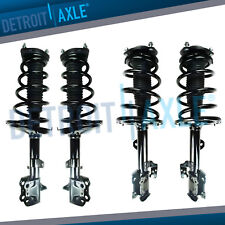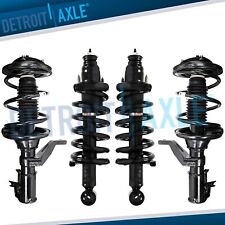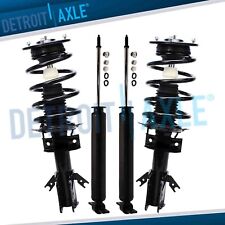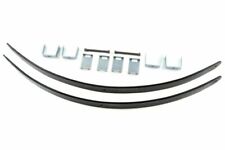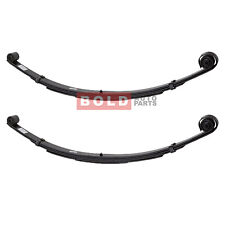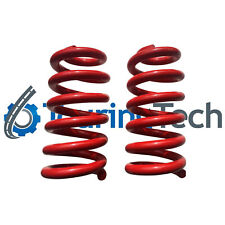Study: Younger generation seems to care less about cars

During the first 8 months of 2009, J.D. Power and Associates analyzed hundreds of thousands of “conversations” on auto-related sites and social networks such as Twitter and Facebook. The goal was to gauge the perceptions of Generation Y towards the automotive industry, as well as toward specific brands.
“Online discussions by teens indicate shifts in perceptions regarding the necessity of and desire to have cars,” J.D. Power Associates said (yes, we’re completely surprised as well).
Part of the reason could be economic difficulties causing teens to be less interested in costs involved with maintaining and fueling a vehicle. Another reason could be that teens are spending too much time on social media forms to connect with their friends, resulting in a decrease for the need to “physically congregate” (aka hang out).
“The negative perceptions of the automotive industry that teens and early careerists hold could have implications on future vehicle sales,” said Parker. “Generation Y could have the greatest spending power of any generation-even surpassing that of the Baby Boomers. It will be essential for automakers to earn the trust and loyalty of Gen Y consumers, who are particularly critical of brands and products.”
Click through for the press release to learn more.
Associations with NASCAR and Action Movies Fuel Online Conversation about Chevrolet and Dodge Among Generation Y
While Domestic Automotive Brands Spark High Volumes of Discussion among Early Careerists,
Teens Discuss Imports Most Frequently
WESTLAKE VILLAGE, Calif.: 8 October 2009 – Promotional ties with NASCAR and the recent “Transformers” movie are driving online conversations about domestic automotive brands-particularly Chevrolet and Dodge-among social media users in their twenties, according to the J.D. Power and Associates 2009 Teens and Early Careerist Tribe Intelligence Reports.SM
Perceptions of the automotive industry vary widely among Generation Y social media users, with teens commenting most positively about import brands and their older counterparts more frequently discussing domestic brands.
The inaugural reports, conducted using J.D. Power and Associates Web Intelligence Tribe Analysis,SM examine online discussions of two important subsets of Generation Y: teens (ages 12 to 18) and early careerists (ages 22 to 29). Although both groups are broadly categorized as part of Generation Y, or the Millennials (those born during the 1980s and early 1990s), each subset has markedly different views, opinions and behaviors from the other. The reports are designed to help brand managers and marketers better understand these increasingly important consumer segments, which have the potential to attain greater spending power than any previous generation. In addition, the reports provide valuable insight into Gen Y consumer perceptions of brands as well as what drives consumers to purchase those brands.
Automotive brands that receive the greatest volumes of online discussion among teens and early careerists, relative to volumes among social media users in other age groups, are as follows.
|
Rank |
Early Careerists |
Teens |
|
1 |
Dodge |
Toyota |
|
2 |
Chevrolet |
Honda |
|
3 |
Toyota |
Audi |
|
4 |
Land Rover |
Cadillac |
|
5 |
Mazda |
Chevrolet |
|
6 |
Jeep |
Jeep |
|
7 |
Lexus |
Mercedes |
|
8 |
Honda |
Volkswagen |
|
9 |
Ford |
Nissan |
|
10 |
Buick |
BMW |
The report finds that among early careerists, Dodge and Chevrolet are the two automotive brands discussed most often, relative to mentions by social media users in other demographic groups. Online mentions of these brands also tend to be largely positive. Discussions of these brands focus primarily on their association with NASCAR. Other frequently mentioned topics include nostalgia references to models such as the Chevrolet Camaro, including the Camaro’s appearance in the recent “Transformers” movie, and the Dodge Challenger.
“Domestic automakers are benefitting from their strong marketing ties and product placement,” said Chance Parker, vice president and general manager of J.D. Power and Associates Web Intelligence Division. “When the NASCAR drivers they sponsor win, domestic automakers also win in terms of recognition among many social media users in their twenties.”
Despite this positive brand affinity, domestic auto manufacturers have incurred strong negative sentiment from early careerists for being bailed out by the government.
“Early careerists cite domestic automakers’ lack of innovation and disregard of consumer demands as reasons for their difficulties,” said Parker.
Among teens, Toyota and Honda garner the largest volumes of discussion. Both teens and early careerists perceive Toyota, as well as other import brands, as more innovative not only in vehicle features and styling, but also for enhanced fuel efficiency, safety and reliability. Lexus and Land Rover are premium brands discussed among early careerists as brands they most aspire to own.
Online discussions by teens indicate shifts in perceptions regarding the necessity of and desire to have cars. Aware of the economic difficulties their parents may be currently facing, teens are less interested in incurring the costs involved with maintaining and fueling a vehicle. Also, with the advent of social media and other forms of electronic communities, teens perceive less of a need to physically congregate, and less of a need for a mode of transportation.
“The negative perceptions of the automotive industry that teens and early careerists hold could have implications on future vehicle sales,” said Parker. “Generation Y could have the greatest spending power of any generation-even surpassing that of the Baby Boomers. It will be essential for automakers to earn the trust and loyalty of Gen Y consumers, who are particularly critical of brands and products.”
The Teen and Early Careerist Tribe Intelligence Reports analyze more than 300,000 spontaneous online conversations among teens and more than 475,000 online conversations among early careerists that took place in the blogosphere and on message boards between January and August 2009.
The J.D. Power and Associates Web Intelligence Division is unique in its ability to assess both what is being said and who is doing the speaking in the online world, enabling companies to understand the attitudes and behaviors of various consumer segments. Its patent-pending technology enables the classification of blog posts and the ability to estimate the gender and age of a poster, as well as rapid identification and elimination of spam posts. The Web Intelligence Division analyzes voices of the online community by using proprietary natural language processing and machine-learning algorithms to dissect the who, what and why of online opinion, offering in-depth insights for some of the world’s leading brands.
– By: Omar Rana


